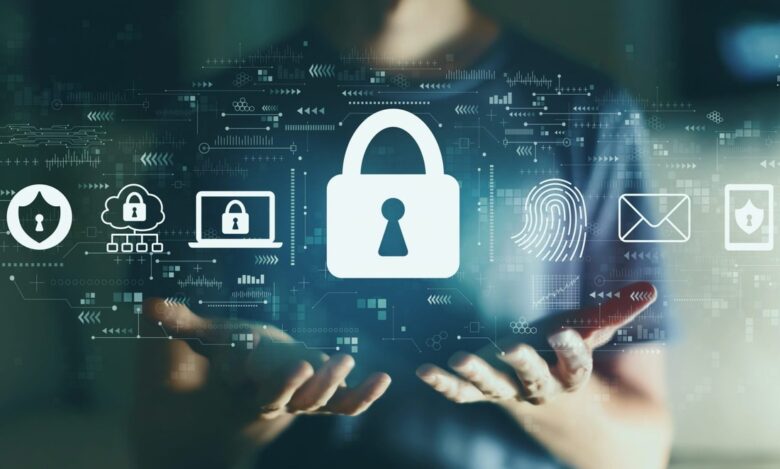In our hyper-connected world, a stable internet connection has become as essential as running water and electricity. Constant connectivity brings with it an ever-growing swarm of digital threats that exploit every click, every login, and every unsecured device. Internet security has evolved from antivirus software to defense-in-depth. This article goes beyond a simple list and offers a research-based approach to digital security. We’ll cover every important security aspect, from your home network to your online behavior, so you can surf the internet with confidence and reduce the risk of becoming a statistic.
Home Internet Security: The Basics
Your home Wi-Fi network is the gateway to your online life and, therefore, your most important security measure. The most important step is to immediately change the default administrator password and username on your router. These default credentials are often publicly available online, meaning anyone within your network’s range can access your network settings.
Next, choose the strongest possible encryption. WPA3 is the industry standard for brute-force security. Avoid outdated and easily hacked WEP encryption; if your router doesn’t support it, use WPA2 (AES). Change your Wi-Fi network name (SSID) to a unique name that doesn’t identify you or your address to prevent targeted attacks. Finally, keep your router software up to date, as manufacturers release patches to address security vulnerabilities that hackers try to exploit.
Unbreakable Passwords and Password Managers:
The advice to use strong passwords remains important, but our definition of “strong” has changed. The strength of a password now depends on its length, not its complexity. A passphrase—a random string of words or phrases that you can remember but others can’t—is more secure than a combination of letters, numbers, and symbols that you might forget. For example, “BlueCoffeeMugFliesAtNight!” is much stronger than “W@ssw0rd123.”
Consistently using a trusted password manager is the key to truly improving your password security. These tools create and store long, random, and unique passwords for every website and service. This approach prevents credential stuffing attacks, where hackers use a weak password to access accounts on other platforms. Your manager’s master password is the key to your digital kingdom, so it must be strong.
The Essential Shield of Multi-Factor Authentication (MFA):
Multi-factor authentication (MFA) is an additional security measure that requires a key, such as a strong password. Setting up MFA immediately, where possible, is the best way to protect your account. MFA requires a second verification method in addition to your password, such as an authenticator app or security key on your phone, or fingerprint or facial recognition. If cybercriminals steal your password through phishing or a data breach, they can’t access your account without this second verification method.
Verification codes via SMS are better than nothing, but SIM swap attacks are still possible. For maximum protection of your most sensitive accounts (including email, banking, and financial services), use specialized authentication tools (such as Google Authenticator, Authy, or Microsoft Authenticator) or physical security keys (such as YubiKey).
Identifying and Avoiding Phishing and Social Engineering Traps:
Cybercriminals are skilled manipulators, and individuals frequently represent the weakest security point. Social engineering, or phishing, has evolved from the poorly worded “Nigerian Prince” emails of the past. Spear phishing scams can impersonate your bank, a colleague, or popular services like Netflix or Amazon. They exploit your sense of urgency or fear to lure you into clicking on malicious links or downloading infected add-ons. Cultivate a healthy dose of skepticism to protect yourself. Check the sender’s email address for minor typos, hover over links to verify the URL before clicking, and be wary of urgent emails. Remember that no legitimate organization will email or contact you to ask for passwords or sensitive information. Contact the organization through their website or phone number to confirm the request.
Software Updates: Your Digital Defense
Regularly updating your operating system, online browser, and applications may seem like a chore, but it’s a crucial security measure. Software updates primarily address security vulnerabilities that hackers exploit. Each update protects these vulnerabilities, like an unlocked window, from accessing your digital home. Even a few days of delaying updates can expose you to known risks. Enable automatic updates immediately on your computers, smartphones, smart TVs, and routers to receive these critical patches. This passive defense mechanism protects you from a wide range of malware and attacks without requiring constant effort, making it one of the most effective security technologies.
VPN for Privacy on Public Networks:
While convenient, Wi-Fi networks in cafes, airlines, and hotels are notoriously insecure. Cybercriminals can use inexpensive equipment to intercept data sent over open networks. Passwords, emails, and personal information are vulnerable to monitoring without encryption. Use a trusted VPN to encrypt your data on untrusted networks. A VPN encrypts all network traffic between your device and the internet, preventing eavesdropping. Choose a reliable VPN that has a no-logging policy and doesn’t track your online activity. A VPN is essential for public Wi-Fi, but it can also protect your privacy at home by hiding your IP address from websites.
Conclusion:
Securing your online connection requires constant vigilance and flexibility. The digital threat landscape is constantly evolving with new vulnerabilities and attack vectors. By fortifying your home network, using a password manager and multifactor authentication (MFA), being wary of social engineering, keeping your software up-to-date, and using a VPN on public networks, you can build a strong defense to protect your data, finances, and identity. This path to strong digital security allows you to confidently access the power of the internet. The goal is to establish a barrier that is effective enough to divert attackers’ attention to less vulnerable targets, thereby enabling you to explore, work, and communicate with confidence.
FAQs:
1. Is WPA3 necessary, or is WPA2 more secure?
While WPA2 (AES) remains a secure encryption system, WPA3 represents a significant security improvement. It prevents offline brute-force attacks and simplifies IoT security. When purchasing a router, make sure it supports WPA3. If your router only supports WPA2, it is currently secure, but you should upgrade for better security.
2. What is the biggest password mistake?
Reusing passwords is the biggest risk. If you use the same password, a single breach at one company can compromise the security of all your websites. Using a password manager to generate and store unique passwords for each account is the best way to address this common problem.
3. Are authenticator apps more secure than SMS verification codes?
Yes, absolutely. Hackers can steal your mobile provider’s phone number through social engineering and replace it with their SIM card, making SMS-based two-factor authentication insecure. This means that thieves can steal verification codes. Authenticator apps generate verification codes on your device even when you’re not on a cellular network, making them immune to this attack.
4. How can I check if a software update isn’t malware?
This is a legitimate concern. Never click on links in emails or pop-ups to update software. Instead, use the app’s built-in update checker (for example, go to Settings > Updates on your phone or in apps like Chrome or Adobe) or download the update from the developer’s website.
5. Should I always use a VPN at home?
WPA2/WPA3 encryption protects your trusted home network, so a VPN isn’t necessary. Many privacy-conscious users keep a VPN enabled to prevent their internet service provider from collecting and selling their browsing data. A VPN is essential for public or untrusted Wi-Fi networks.




